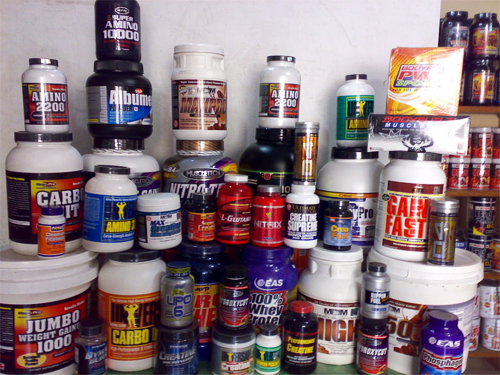The Only 3 Supplements Worth Your Money
Including The 1 I Never Go Without

The first and most important thing I want to say in this article is this. None of the supplements I am going to mention below are necessary in order to achieve your muscle building goals. When I transformed by body for the first time by packing on 27 lbs of lean mass, I did not even know what these supplements were.
Who should consider these supplements?
The only people who should consider these supplements are intermediate or advanced trainees (anyone training 2+ years consistently) who need that extra bit of an edge. There may be some exceptions for a beginner to consume some of these supplements and I’ll mention those reasons when discussing the supplement.
Supplement #1 – Creatine Monohydrate
Creatine is a naturally occurring amino acid in the body and it’s also found in meat and fish. However, most people will not get nearly enough creatine through their diet in order to fully saturate the muscle cells.
Creatine is the most tested, studied, and proven supplements on the market, period.
Creatine supplements (such as creatine monohydrate) are aids used to increase athletic performance during exercise. Supplementing with creatine increases the stores of ATP in the muscles. Creatine also saturates the muscles with water allowing better hydration which helps with recovery.
Non-Responders
Some trainees will react differently to supplementing with creatine depending on their body’s natural levels. People who already have high levels of creatine will most likely not see a difference from supplementing with is, these people are known as non-responders.
What You MUST Know About Creatine Monohydrate
How Much Should Creatine Monohydrate Cost Me? $10-15 is the standard pricing for a 1-2 month supply (sometimes more) of plain creatine monohydrate.
Supplement #2 – Fish Oils

Essential Fatty Acids or Omega 3s are required for our body to function in an optimal state. Because our body does not naturally produce them, we must get them from our diet (or supplementation).
There are a number of EFAs but the most critical are EPA and DHA which are mostly found in cold water fish. Getting adequate amounts of EPA and DHA play a vital role in our overall growth and development.
Other benefits of Fish Oils are…
• Reduces Inflammation
• Improves Your Skin Completion
• Healthier Hair
• Lowers Cholesterol
• Reduces High Blood Pressure
How much fish oil should I take?
Although our diet can essentially provide enough EFAs, in a lot of cases it is hard to be 100% sure. With that said, 2-3grams per day would be ideal for the average trainee.
How to choose the right Fish Oil supplement

Although most fish oil supplements will do the trick, aiming for a fish oil that is provided in its naturally-occurring triglyceride form will allow for better absorption and reduced oxidation.
The Fish Oils I am currently taking are by a company called Citadel Nutrition: Fish Oil – Omega 3
How Much Should Fish Oils Cost Me? No more than $15 for a 1-2 months’ supply.
Supplement #3 – Multi-Vitamins

As you progress in intensity, effort, and constantly tire your body, your micronutrient (vitamins and minerals) needs will increase. Although we can achieve adequate vitamins and minerals by ensuring we are consuming enough fruits and vegetables throughout the day, for some, this may become very difficult/expensive.
With that in mind, a multi-vitamin that will help ensure you are getting enough of these micronutrients on a daily basis (considering some days we may not have certain foods available). The typical Men’s 1-a-day vitamins should be sufficient. (1 serving per day)
How Much Should a Multi-Vitamin Cost Me? I would not recommend spending more than $15-20 on a 30 day supply of multi-vitamins.
What about Protein?

I can almost guarantee that by now you are asking yourself “how the hell is protein not on this list?”
The reason is simple…
In my opinion, protein powders should not be considered supplements. Mainly because protein is a macronutrient and can easily be consumed in the foods we eat.
Do we NEED a protein powder to build muscle?
Absolutely not! Again, protein is a macronutrient and by now, you should know exactly how much protein your body requires daily in order to build muscle. If you are able to consume that amount of protein without touching any protein powders, then there is no reason to invest in one.
Benefits of protein supplementation…
• Cost effective
• Convenient
• Great for high protein recipes (shakes, pancakes, smoothies, etc)
• Biological Value (Amino Acid Content)
Best Protein Supplement
If you are someone who has a hard time achieving your protein goals for the day (or you just like to consume shakes), then a basic whey protein will suffice. If you have an intolerance to lactose, then consider a whey isolate product.
The Ugly Truth about Supplements
If your current diet and training is not producing results, these supplements won’t help. I don’t care how effective the supplement, nothing (including steroids) will do you no good unless your diet and nutrition are 100% in order.